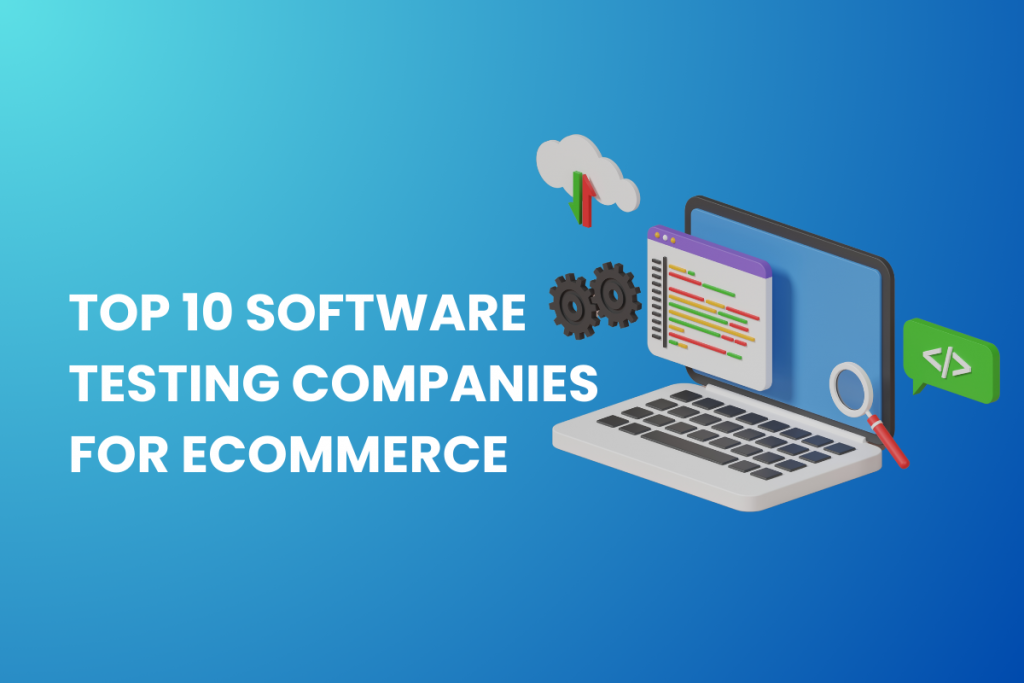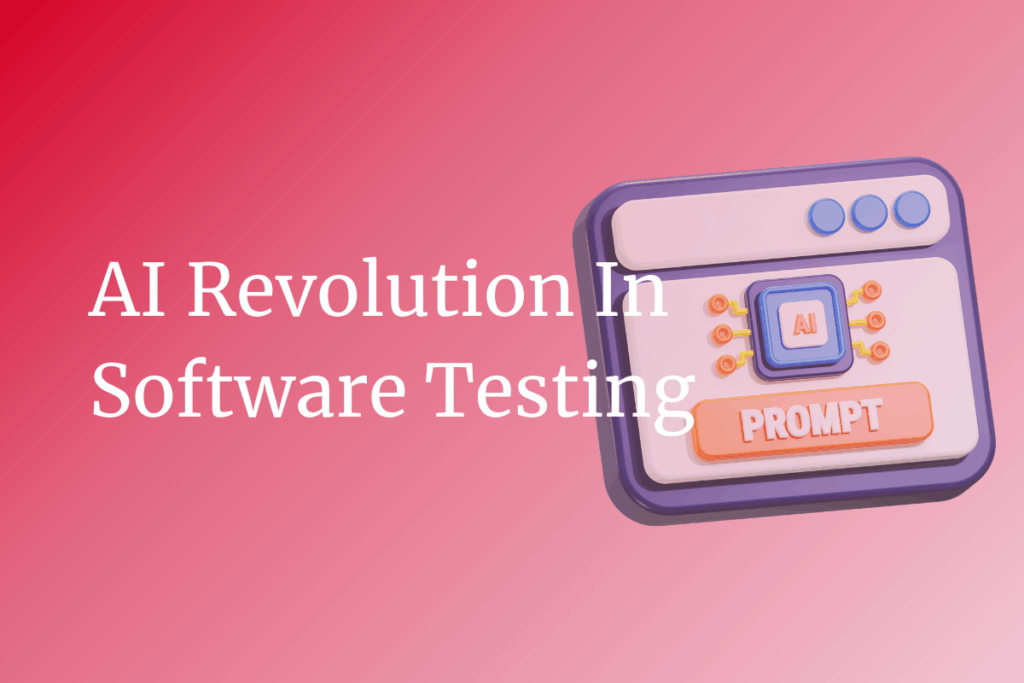The digital commerce landscape is experiencing an unprecedented transformation. As consumers demand increasingly personalized experiences and businesses strive for operational excellence, artificial intelligence has emerged as the driving force behind the most successful eCommerce platforms. From Amazon’s sophisticated recommendation engines to Shopify’s intelligent inventory management, AI is no longer a luxury; it’s a necessity for survival in today’s competitive marketplace.
The AI Revolution in eCommerce: More Than Just a Trend
The global market for AI in eCommerce has reached $9.01 billion in 2025, representing a significant leap from $7.25 billion just one year ago. With a projected compound annual growth rate (CAGR) of 24.34%, this market is expected to reach an astounding $64.03 billion by 2034. These numbers reflect not just investment growth, but the tangible value businesses are extracting from AI-powered solutions.
What makes this transformation so compelling is the breadth of applications. AI isn’t confined to a single aspect of eCommerce; it’s revolutionizing everything from customer acquisition to inventory management, fundamentally changing how online businesses operate and compete.
Eight Game-Changing AI Applications Reshaping Online Commerce
1. Hyper-Personalized Product Recommendations
The days of one-size-fits-all product displays are over. Modern AI recommendation engines analyze vast datasets: browsing history, purchase patterns, search queries, demographic information, and even real-time behavior, to predict what each customer wants before they know it themselves.
The impact: Leading eCommerce platforms report 10-30% increases in sales from personalized recommendations alone. These systems power the “People also bought” and “You may like” sections that have become integral to the online shopping experience.
2. Smart Customer Service That Never Sleeps
AI-powered chatbots and virtual shopping assistants have evolved far beyond simple FAQ responses. Today’s conversational AI can understand context, provide product recommendations, process orders, and even handle complex customer service scenarios with remarkable sophistication.
The business case: Companies implementing advanced chatbots report up to 30% reduction in customer service costs while simultaneously improving response times and customer satisfaction scores. These systems operate 24/7, ensuring no customer inquiry goes unanswered.
3. Dynamic Pricing Intelligence
Real-time pricing optimization powered by machine learning considers dozens of variables simultaneously: competitor pricing, demand patterns, inventory levels, seasonal trends, and individual customer behavior. This creates a responsive pricing strategy that maximizes both revenue and competitive positioning.
Revenue impact: Businesses using dynamic pricing strategies typically see 5-20% revenue increases and 2-5% margin improvements, making this one of the highest-ROI AI applications in eCommerce.
4. Predictive Inventory Management
Traditional inventory management relied on historical data and educated guesses. AI-driven demand forecasting analyzes complex patterns: sales history, seasonal variations, promotional impacts, economic indicators, and even weather data, to predict future demand with remarkable accuracy.
Operational benefits: Companies report up to 50% reduction in stockouts and 20% decrease in carrying costs, dramatically improving both customer satisfaction and cash flow management.
5. Advanced Fraud Detection Systems
AI fraud detection systems analyze transaction patterns, user behavior, device fingerprints, and countless other data points in milliseconds to identify potentially fraudulent activities. These systems learn continuously, becoming more effective over time.
Security impact: Advanced AI fraud detection reduces false positives by 40% while preventing an estimated $48 million per year in losses for major eCommerce platforms.
6. Intelligent Search and Visual Discovery
Modern eCommerce search goes beyond keywords. AI-powered search understands intent, handles natural language queries, and can even process images. Customers can upload photos to find similar products, dramatically improving the discovery experience.
Conversion benefits: Improved search relevance typically results in a 25% reduction in bounce rates and 15% increase in conversion rates, directly impacting the bottom line.
7. Automated Content Generation
Large language models now generate product descriptions, marketing copy, email campaigns, and social media content at scale. This automation ensures consistency across thousands of products while enabling rapid A/B testing of different messaging approaches.
Efficiency gains: Businesses report a 70% reduction in content creation time, allowing marketing teams to focus on strategy rather than repetitive writing tasks.
8. Customer Lifecycle Intelligence
AI systems predict customer lifetime value, identify churn risks, and recommend targeted retention strategies. This enables proactive customer relationship management rather than reactive damage control.
Retention results: Targeted campaigns based on AI predictions improve retention rates by up to 20% and increase average order values by 12%.
The Strategic Imperative: Why AI Adoption is Critical
The statistics paint a clear picture of consumer expectations and market realities:
- 91% of consumers prefer brands that offer personalized experiences
- 166% increase in average revenue per user from predictive personalization
- 54% of executives consider AI essential for improving site search functionality
These numbers represent more than preferences; they indicate a fundamental shift in how commerce operates. Businesses that fail to embrace AI risk being left behind by competitors who can offer superior customer experiences at lower operational costs.
The Strategic Roadmap: From Vision to AI-Powered Success
The successful implementation of artificial intelligence (AI) in the eCommerce sector consists of a strategic progression through several key phases:
Phase 1: Foundation Building
Data Infrastructure: The first step is to establish a robust framework for collecting and managing data. This requires setting up advanced systems capable of securely storing vast amounts of information, ensuring that data is both accessible and reliable for analysis.
Platform Assessment: Conduct a thorough evaluation of the current eCommerce platform’s capabilities. This includes identifying strengths and weaknesses, as well as understanding the necessary integrations required to support AI functionalities.
Strategic Planning: Develop a comprehensive roadmap that defines specific AI objectives that are in harmony with the broader business goals. This strategic plan acts as a guiding document for implementation efforts.
Phase 2: Core AI Implementation
Recommendation Systems: Introduce personalized product recommendation engines that analyze customer behavior to suggest items tailored to individual preferences, enhancing the shopping experience and increasing conversion rates.
Search Enhancement: Implement advanced AI-powered features that improve search functionality, making it easier for customers to find products. This may involve natural language processing to understand queries better and provide relevant results.
Customer Service Automation: Transform customer support by integrating intelligent chatbots and virtual assistants. These tools can handle common inquiries and provide 24/7 assistance, helping to improve customer satisfaction while reducing operational costs.
Phase 3: Advanced Optimization
Predictive Analytics: Leverage predictive analytics tools to forecast demand and optimize inventory levels. This allows businesses to better understand trends, reduce excess stock, and enhance supply chain efficiency.
Dynamic Pricing: Implement systems that utilize real-time pricing intelligence, adjusting prices dynamically based on market conditions, competitor pricing, and demand fluctuations to maximize revenue and competitiveness.
Fraud Prevention: Implement advanced security measures, including AI-driven fraud detection systems, to identify suspicious activities and safeguard both the business and its customers against potential threats.
Phase 4: Continuous Innovation
Performance Monitoring: Commit to the ongoing analysis and optimization of AI system performance. Regularly assess metrics and user feedback to ensure that the AI tools are delivering value and functioning effectively.
Feature Expansion: Actively seek opportunities to introduce new AI capabilities as the business scales. This may include exploring emerging technologies and adapting to market shifts to enhance overall service offerings.
Competitive Advantage: Stay ahead in the competitive eCommerce landscape by continually integrating cutting-edge AI innovations. This proactive approach not only addresses current market needs but also positions the business as a leader in utilizing advanced technologies for customer engagement and operational efficiency.
Implementation Challenges: Why Partnership Matters
While the benefits of AI in eCommerce are clear, successful implementation requires specialized expertise. The challenges are significant:
- Technical Complexity: Building AI systems requires deep expertise in machine learning, data engineering, and system integration
- Data Quality: AI is only as good as the data feeding it, requiring robust data collection and management strategies
- Integration Requirements: AI solutions must seamlessly integrate with existing eCommerce platforms, payment systems, and business processes
- Ongoing Optimization: AI systems require continuous monitoring, training, and refinement to maintain effectiveness
Selecting the right AI development partner is crucial for businesses aiming to implement effective AI solutions in the online retail sector. The choice of a partner can significantly influence the success of AI initiatives and their alignment with business objectives. Key factors to consider in this decision-making process include the partner’s AI expertise, technical capabilities, and industry experience.
Key Factors in Partner Selection
AI Expertise and Technical Capabilities
An ideal partner should possess a deep understanding of AI and machine learning technologies, including algorithms and data management practices. Their technical prowess is essential for developing robust AI systems that can handle complex tasks and integrate seamlessly with existing retail infrastructures.
Industry Experience
Choosing a partner with proven experience in the retail industry is vital. Such partners are familiar with unique challenges, regulations, and customer expectations that are inherent to the sector. This experience allows them to tailor AI solutions that effectively address specific retail needs, such as optimizing inventory management and enhancing customer engagement.
Proven Portfolio and Case Studies
A solid portfolio showcasing successful AI projects can serve as a testament to a partner’s capabilities. Reviewing case studies enables organizations to assess how a partner has previously helped other retailers achieve their goals through AI implementation. This insight can guide businesses in understanding potential outcomes and identifying the partner’s alignment with their objectives.
Ensuring Long-term Success
Selecting the right partner is not merely a transactional decision; it requires building a collaborative relationship that fosters innovation and continuous improvement. Companies should look for partners who are willing to engage in ongoing training and upskilling of staff, ensuring that teams are equipped to leverage AI insights effectively. Additionally, partners should be capable of customizing AI solutions that are not only innovative but also considerate of operational disruptions during integration. By establishing a partnership focused on mutual goals, retailers can better navigate the complexities of AI implementation, ultimately leading to enhanced operational efficiency and improved customer experiences.
SHIFT ASIA: Your Strategic Partner in AI-Powered eCommerce Development
Navigating the complexities of AI-enhanced eCommerce development requires a partner who understands both the technological possibilities and the business imperatives. SHIFT ASIA combines Japanese quality standards with technical excellence to deliver world-class eCommerce solutions that leverage the full power of artificial intelligence.
Why SHIFT ASIA for Your eCommerce AI Journey
Proven Expertise: As a strategic Southeast Asian hub for SHIFT Inc., SHIFT ASIA brings over eight years of experience in high-quality software development and testing. With over 200 skilled professionals, the company has successfully delivered projects across North America, Europe, and Asia.
ECommerce Specialization: SHIFT ASIA’s portfolio spans multiple industries, including banking, finance, ERP, eCommerce, travel, healthcare, gaming, and telecommunications. This diverse experience ensures a deep understanding of eCommerce-specific challenges and opportunities.
Quality-First Approach: Following the SHIFT Method with over 900 test viewpoints, SHIFT ASIA ensures comprehensive quality assurance that goes beyond traditional testing approaches. With only a 3% acceptance rate for engineers, including live coding assessments, you’re partnering with elite talent.
End-to-End Capabilities: From MVP development and custom software creation to full-scale application development and system modernization, SHIFT ASIA offers comprehensive services that cover every aspect of your AI-powered eCommerce platform.
Transparent Partnership Model: SHIFT ASIA operates as a true strategic partner, not just a vendor. With transparent pricing, excellent project management, and bilingual teams ensuring seamless communication, you maintain control while accessing world-class technical capabilities.
Core Services for AI-Enhanced eCommerce
Custom eCommerce Development: Build sophisticated online retail platforms with integrated AI capabilities from the ground up, designed to scale with your business growth.
AI Integration Services: Seamlessly incorporate recommendation engines, chatbots, dynamic pricing, and predictive analytics into existing eCommerce platforms.
Quality Assurance Excellence: Ensure your site works flawlessly across all devices and scenarios with comprehensive testing methodologies.
Agile Development Approach: Rapidly iterate and optimize your AI features based on real user data and feedback, maintaining a competitive advantage in fast-moving markets.
The Future is Now: Your Competitive Advantage Awaits
As we look toward the future, one thing is clear: AI will continue to reshape eCommerce in ways we’re only beginning to imagine. The question isn’t whether AI will transform eCommerce – it’s whether your business will be among the leaders driving this transformation or struggling to catch up.
The future of eCommerce belongs to businesses that can successfully integrate AI into every aspect of their operations, from customer acquisition and service to inventory management and fulfillment. With the right strategy, technology partners, and implementation approach, any business can harness AI’s power to create exceptional customer experiences and drive sustainable growth.
The AI revolution in eCommerce is accelerating. The tools exist. The market is ready. The only question is: Will you lead this transformation or follow it?
Ready to revolutionize your eCommerce platform with AI? Contact SHIFT ASIA today and discover how a strategic partnership can transform your online retail vision into a market-leading reality.
ContactContact
Stay in touch with Us




